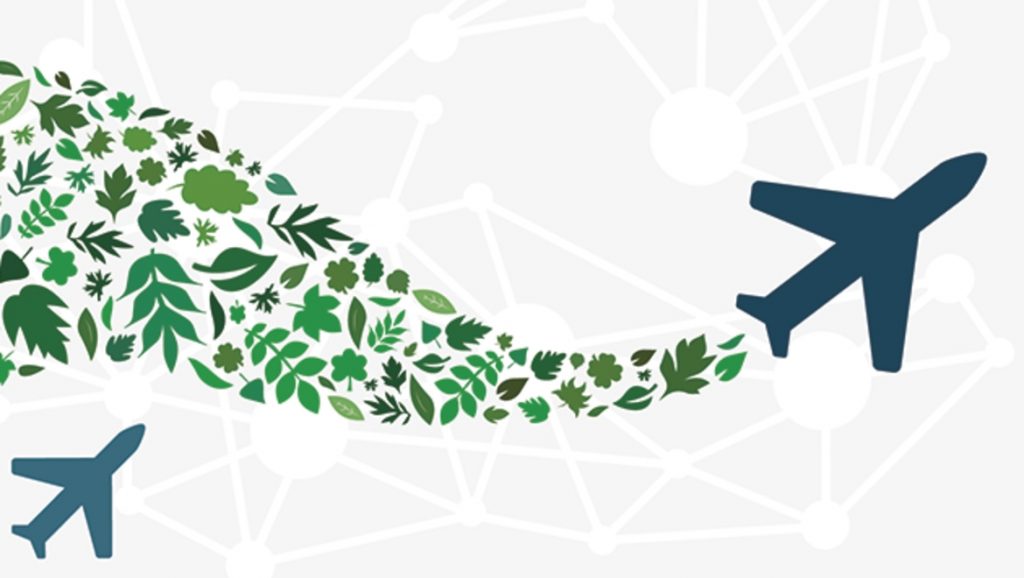
US aerospace engine-maker Pratt & Whitney, along with key industry groups, has signed a letter of endorsement for a newly introduced bill that would establish a blender’s tax credit for sustainable aviation fuels (SAF), in an attempt to make SAF more financially feasible for airlines.
Since the increase in public demand for climate action, more companies are moving towards sustainable measures of operation. While SAF is one means paving the way towards sustainability in the aviation industry, as it stands, it is more than double the cost of common jet fuel, and supply is intermittent.
Additionally, jet fuel regularly accounts for over 40 per cent of an airline’s operating costs.
As such, Pratt and Whitney has joined industry players in supporting new tax credits that could incentivise greater uptake of SAF, and stimulate necessary investments in production infrastructure.
The blender’s tax credit would generate a US$1.50-US$2.00/gallon credit for SAFs that achieve a 50 per cent or higher reduction in greenhouse gas emissions.
The proposal forms part of the Sustainable Skies Act, introduced by Representatives Brad Schneider, Dan Kildee, and Julia Browley.
SAFs are an alternative to common jet fuels, often a hybrid blend, and reduce CO2 emissions produced from aircraft up to 80 per cent. SAFs are often derived from feedstocks such as cooking oil, plant matter, rubbish, waste food and other materials.
Geoff Hunt, Pratt & Whitney senior vice president, believes the aviation industry has the resources to approach more sustainable ways of operating.
“The answer to more sustainable aviation is not asking people to travel less. The answer is in employing smarter, more environmentally friendly technologies to help people and cargo take flight,” said Hunt.
Meanwhile, Pratt & Whitney senior fellow for advanced technology, Dr Michael Winter, said that aircraft engines were already successfully using SAFs, however supply remains a global issue.
Around 370 billion litres of jet fuel is required for the world’s fleet of aircraft, and just a few hundred million litres of SAF are currently being produced, Dr Winter said.
“Because of the supply issue, SAF tends to be two to five times more costly than jet fuel, but as capacity increases that will decrease,” said Dr Winter.
“We’ve burned 100 per cent SAF in our engines for more than 15 years, and when there’s enough SAF for 100 per cent use we will be ready.”
While there are other alternatives to jet fuels entirely, such as hydrogen-powered or electric flight, Dr Winter said the most realistic future of sustainable aviation includes a hybrid electric model, using a combination of battery power and sustainable aviation fuels to power aircraft.
As previously reported by World of Aviation, Eurocontrol recently released its latest data, which showed the EU only used 0.05 per cent of SAF before the pandemic. The European Commission will soon mandate a minimum of 10 per cent usage for all airlines, through a blended fuel approach.
However, as noted, there are various issues that could arise consequently from increasing the use of SAFs, such as Tankering.
“Some airlines might therefore be tempted to increase their use of economic tankering, which would threaten the acceleration of the decarbonisation of aviation,” said the Eurocontrol.
Tankering is a practice of “uplifting excess cheap fuel at one airport to avoid purchasing more expensive fuel at another”, according to reports released this year. While tankering saves costs for airlines, it increases system-wide fuel use and emissions and could reduce SAF sales consequently.
Despite these possibilities, Pratt & Whitney is determined to work with regulatory bodies and develop standards that see SAFs used beyond the 50 per cent maximum blend level.











